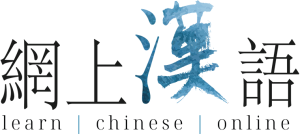Analysis of text n°1
Click to open.
Study the text and pay great attention to the explanations. Write down words and phrases that are new to you. Make a list in English and find the words / expressions in Chinese characters orally and then in writing (Chinese characters).
When you have mastered the new spoken and written vocabulary from English to Chinese, it is good to come back to the text to train the listening again: listen to the text as many times as necessary to understand it without error.
Same principle for writing: you must read the text, aloud ideally, understanding it without a hitch.
你好,二零二二!
Nǐhǎo, èr líng èr'èr!
Hello, 2022!
我是一名住在北京的法国人,我的中文名字叫李亮,我在中国工作。在这儿,我有两个好朋友,他们一个是美国人,是一名学生,在这里学习中文,叫钱明;一个是中国人,是一名医生,叫谢飞。
Wǒ shì yī míng zhù zài Běijīng de fǎguórén, wǒ de zhōngwén míngzì jiào Lǐ Liàng, wǒ zài Zhōngguó gōngzuò. Zài zhèr, wǒ yǒu liǎng gè hǎo péngyǒu, tāmen yī gè shì měiguórén, shì yī míng xuéshēng, zài zhèli xuéxí zhōngwén, jiào Qián Míng; yī gè shì zhōngguórén, shì yī míng yīshēng, jiào Xiè Fēi.
I am a French living in Beijing. My Chinese name is LI Liang. I work in China. Here I have two friends. One is American. He's a student, he's learning Chinese here. His name is QIAN Ming. The other is Chinese. He is a doctor. His name is XIE Fei.
- 名 míng is a classifier for humans. It is more formal than 个 gè.
- 我的中文名字叫... "My name is called ..." You can also say 我的中文名字是... "My Chinese name is ...", but Chinese people like that kind of phrase: " My name is called ... "," My stomach is hungry "," My heart thinks that ... ", etc.
- 他们一个是美国人...: theme-predicate phrase widely used in Chinese and a little confusing for a Westerner. The theme come first, that is to say what we are talking about: 他们 "they, them", then comes the information about the theme, that is to say all the rest of the Chinese phase, up to to 叫谢飞。 Note that 他们 is not a subject. It would be by adding a verb: 他们是..., but the following would then be different, because it would be necessary to speak immediately of the two people (他们是一个是美国人和一个中国人。). With the theme-predicate construction, it is possible to further develop each of the elements of the theme.
不工作的时候,我很喜欢和他们在一起,喝茶,看电影。今天,我们在饭店吃饭,饭店里的人很多,大家都很高兴,再有一会儿是十二点了,有人站起来请大家一起说:“十,九,八,七,六,五,四,三,二,一,再见,二零二一!你好,二零二二!”
Bù gōngzuò de shíhòu, wǒ hěn xǐhuān hé tāmen zài yīqǐ, hē chá, kàn diànyǐng. Jīntiān, wǒmen zài fàndiàn chīfàn, fàndiàn lǐ de rén hěnduō, dàjiā dōu hěn gāoxìng, zài yǒu yīhuǐr shì shí'èr diǎn le, yǒu rén zhàn qǐlái qǐng dàjiā yìqǐ shuō:“Shí, jiǔ, bā, qī, liù, wǔ, sì, sān, èr, yī, zàijiàn, èr líng èr yī! Nǐhǎo, èr líng èr èr!”
When I'm not working I like to drink tea or watch movies with them. Today we eat in the restaurant. There are a lot of people in the restaurant and everyone is happy. In a moment it will be midnight (12 o'clock). People stood up and invited everyone to say together: "Ten, nine, eight, seven, six, five, four, three, two, one, goodbye 2021! Hello 2022!"
- 一会儿 yīhuǐr, which can also be pronounced yíhuìr, means "a moment". The expression 再有一会儿 literally translates to "have a moment more" and should be understood as "in a little while". It's an expression to remember as it is.
- After a verb 起来 indicates the initiation of the action. With 站 "to stand", the expression 站起来 means "to stand up".
